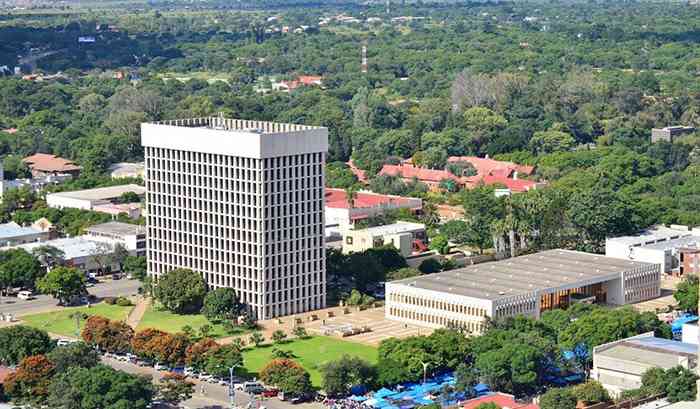
THE African Development Bank Group (AfDB) has approved a US$10,12 million grant to boost sustainable agricultural production for rural resilience in drought-prone areas.
The project, which starts next month and is expected to be completed in December 2029, will directly benefit 7 000 livestock farmers and 42 000 smallholders and crop farmers in Zimbabwe.
The Zimbabwe Agricultural Value Chain and Livelihoods Enhancement Project (AVCLEP) will enhance sustainable crop and livestock production and productivity, improve market access for agricultural products and strengthen value chain integration for micro, small and medium-sized enterprises in the agricultural sector in Zimbabwe.
The AVCLEP project exemplifies government's commitment to enhancing agricultural productivity while mitigating the impacts of climate change.
By introducing climate-smart practices and rehabilitating critical infrastructure, significant improvements in household incomes and food security are expected.
According to AfDB, the programme has a strong emphasis on the inclusion of women (50%) and youth (20%), while 90 000 community members will indirectly benefit from improved water supply, veterinary services and livelihoods programmes.
AfDB said the project was expected to create 200 full-time and 2 800 seasonal jobs along the crop and livestock value chains, with average monthly household income projected to increase from US$85 to US$120.
The development bank has played a critical role in supporting Zimbabwe's rural development process by making sustained investments, which have helped to reduce food insecurity and poverty.
- Mavhunga puts DeMbare into Chibuku quarterfinals
- Bulls to charge into Zimbabwe gold stocks
- Ndiraya concerned as goals dry up
- Letters: How solar power is transforming African farms
Keep Reading
According to Moono Mupotola, AfDB deputy director-general for Southern Africa and country manager for Zimbabwe, the investment will build climate resilience and improve food security in the country.
“This investment represents a critical intervention to build climate resilience and improve food security in Zimbabwe's most vulnerable agricultural communities,” Mupotola said.
“By rehabilitating existing infrastructure and introducing climate-smart agricultural practices, the project will transform livelihoods in areas that have historically suffered from drought and limited access to water resources.”
The project’s primary focus is on climate-smart agricultural productivity and value chain enhancement, which includes rehabilitating dip tanks, developing solar-powered boreholes, and supporting crop-livestock value chains to enhance food and nutrition security.
It will also target building rural communities' livelihoods and resilience to climate change, support integrated land use planning, landscape restoration and catchment management to improve water security.
The programme also includes capacity building, social inclusion and knowledge management to enhance technical skills, promote gender equality and foster youth empowerment as well as project management to ensure efficient implementation and alignment with AfDB’s rules and procedures.
“This project will enhance adaptive capacity, promote sustainable economic opportunities and strengthen the resilience of rural communities to climate change within the target areas,” Martin Fregene, AfDB director for the agriculture and agro-industry department, said.
“We look forward to working with all key stakeholders during project implementation to drive impactful solutions in the target areas which have been negatively affected by climate change.”
The project will be implemented in three provinces, Matabeleland South, Masvingo and Bulawayo Metropolitan, targeting areas with high livestock populations.
The areas are also vulnerable to harsh weather patterns as Zimbabwe faces recurring macroeconomic instability and the impacts of climate change, including floods, droughts and tropical storms, which affect the most vulnerable rural population.
AfDB has played a critical role in supporting Zimbabwe's rural development process by making sustained investments, which have helped to reduce food insecurity and poverty.










